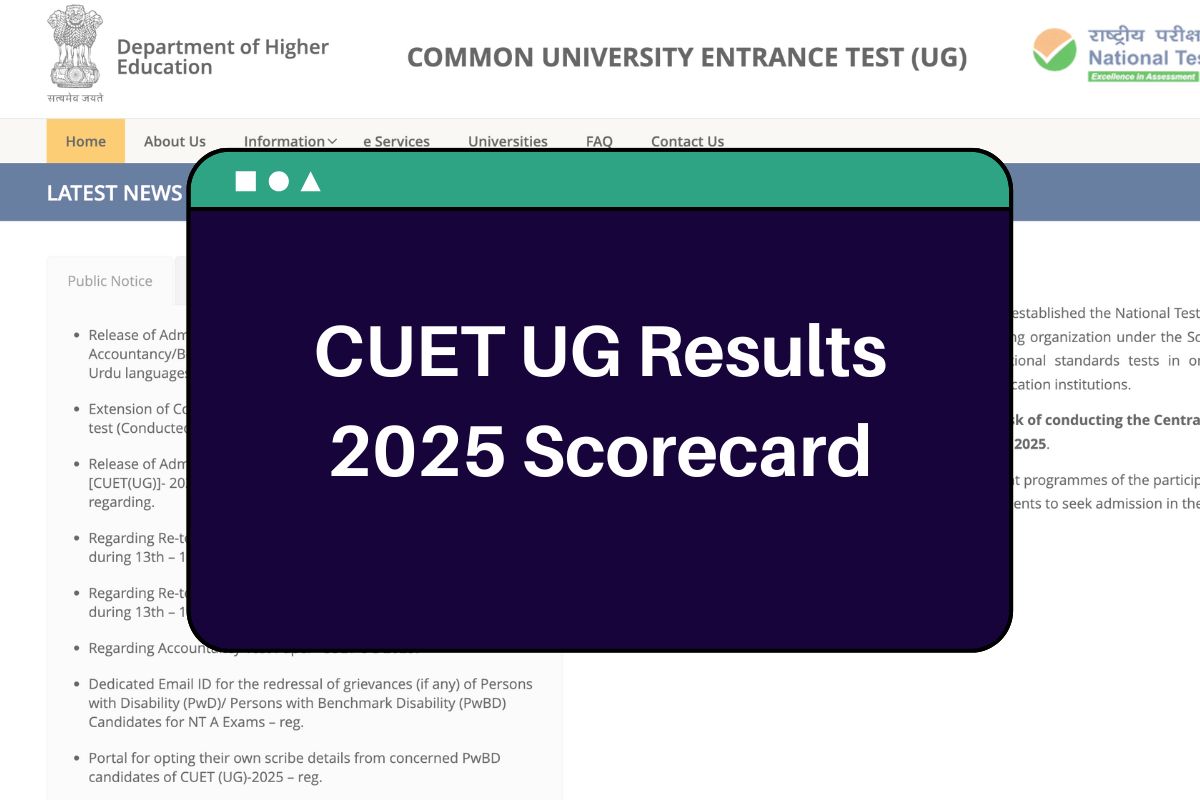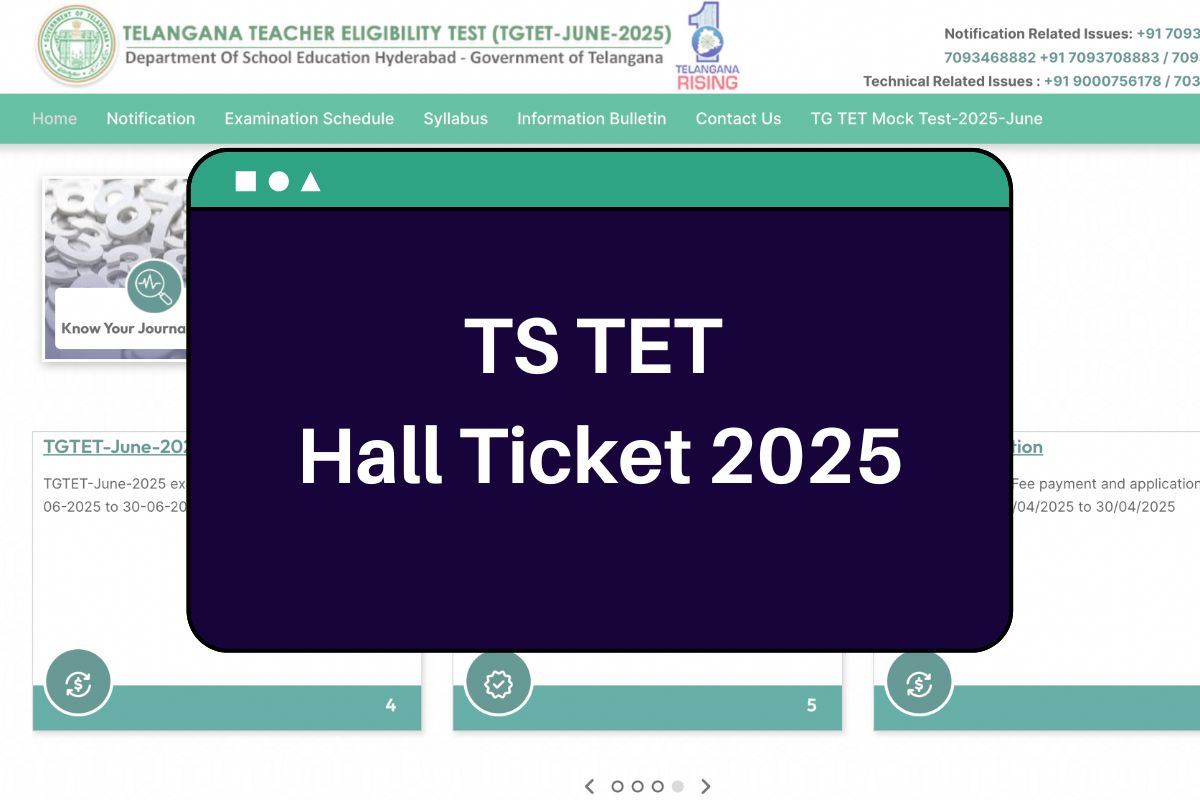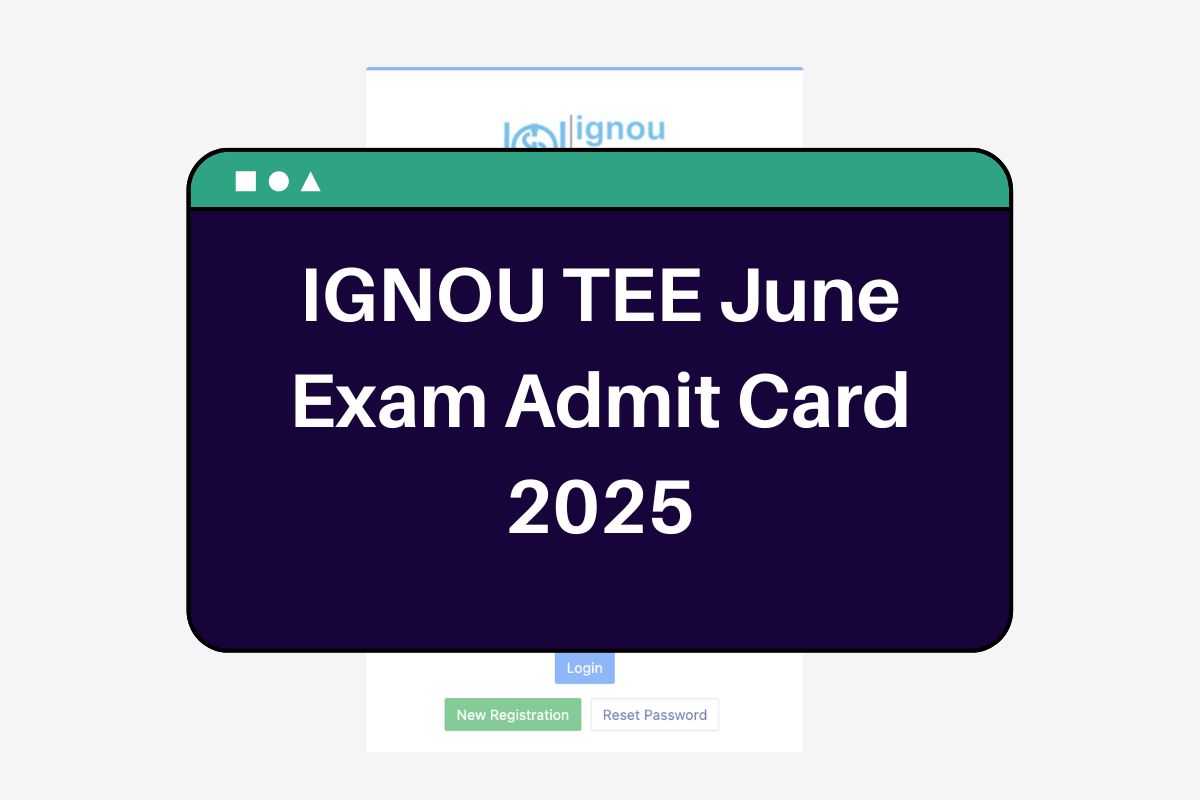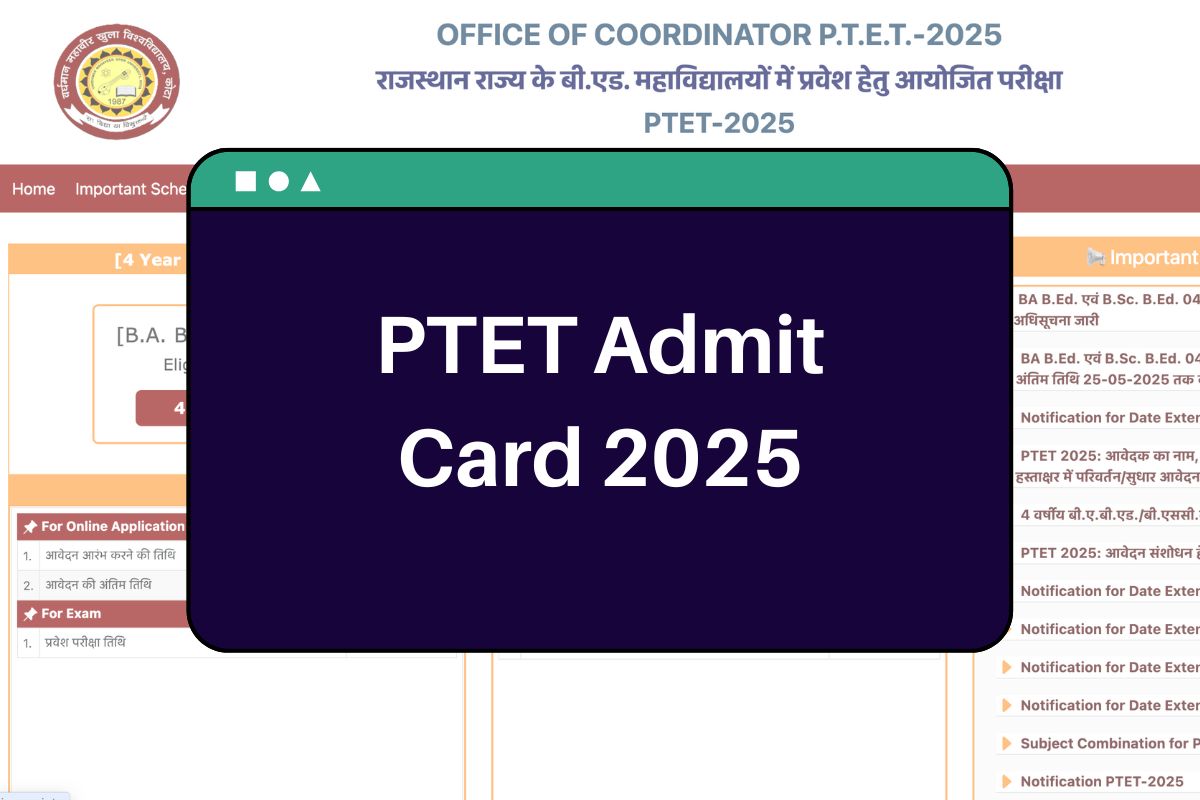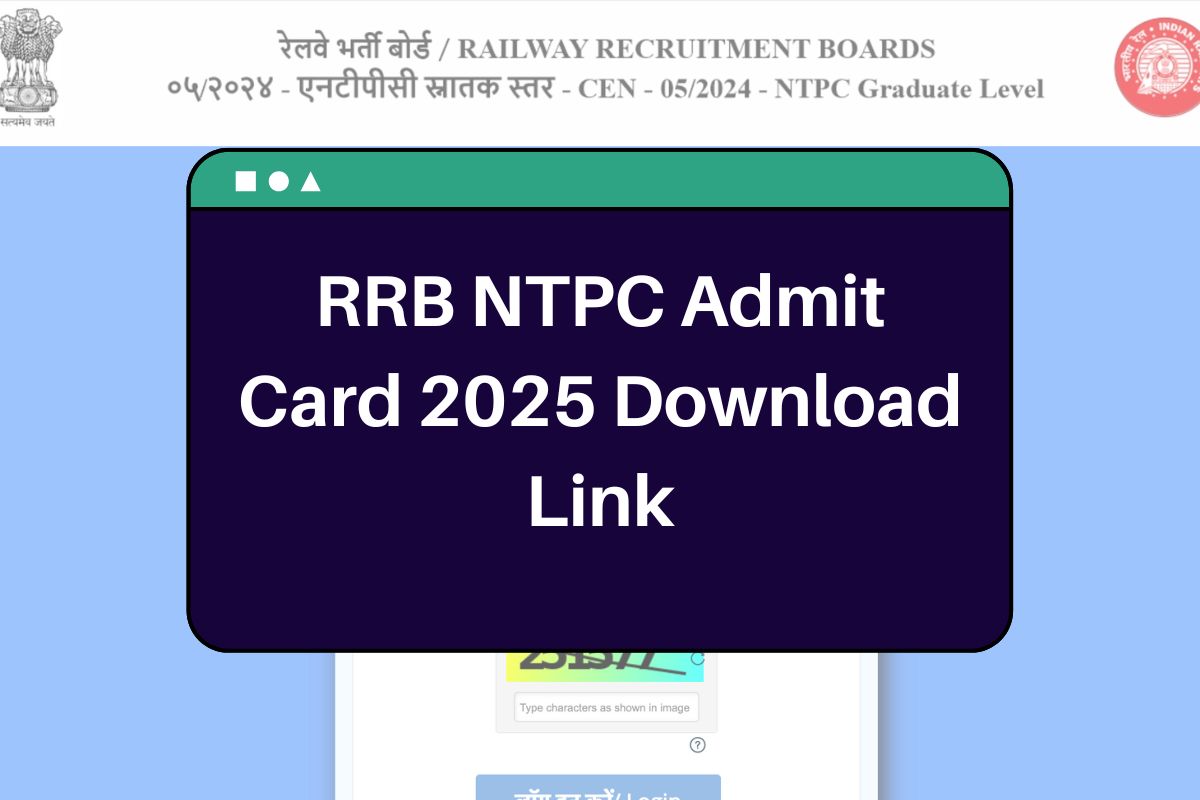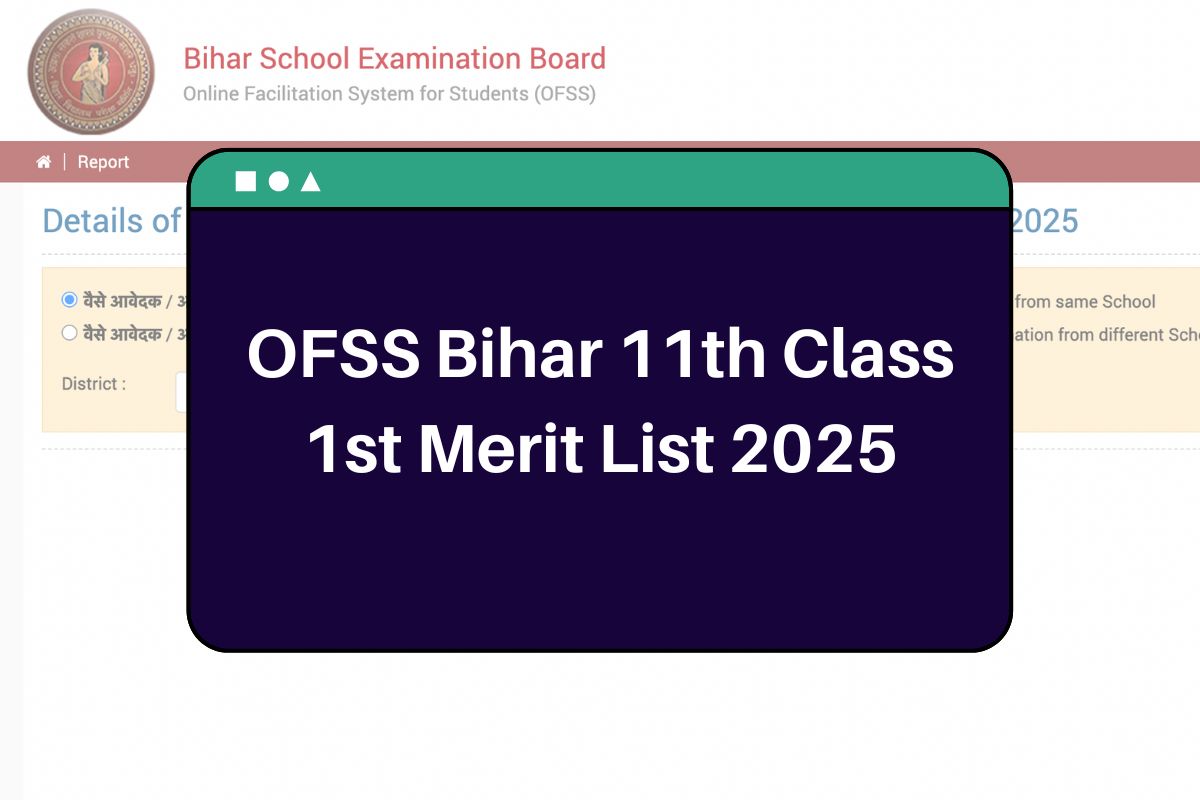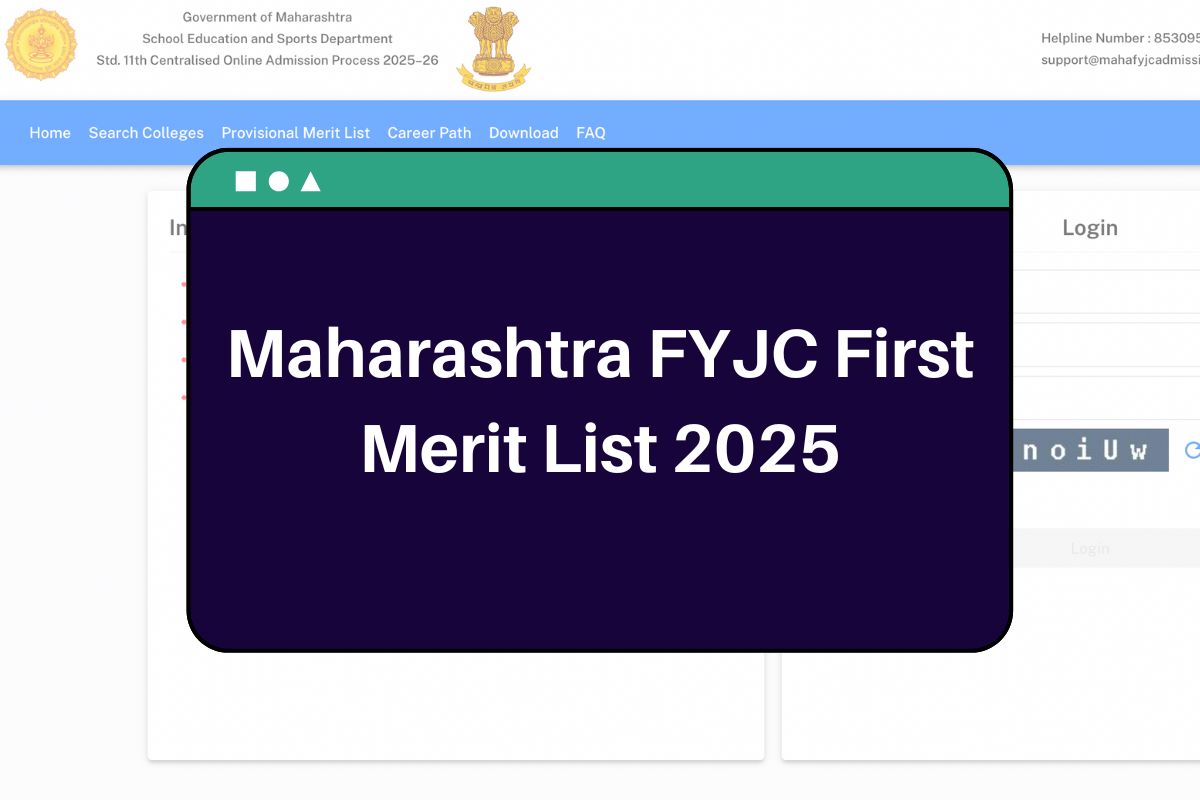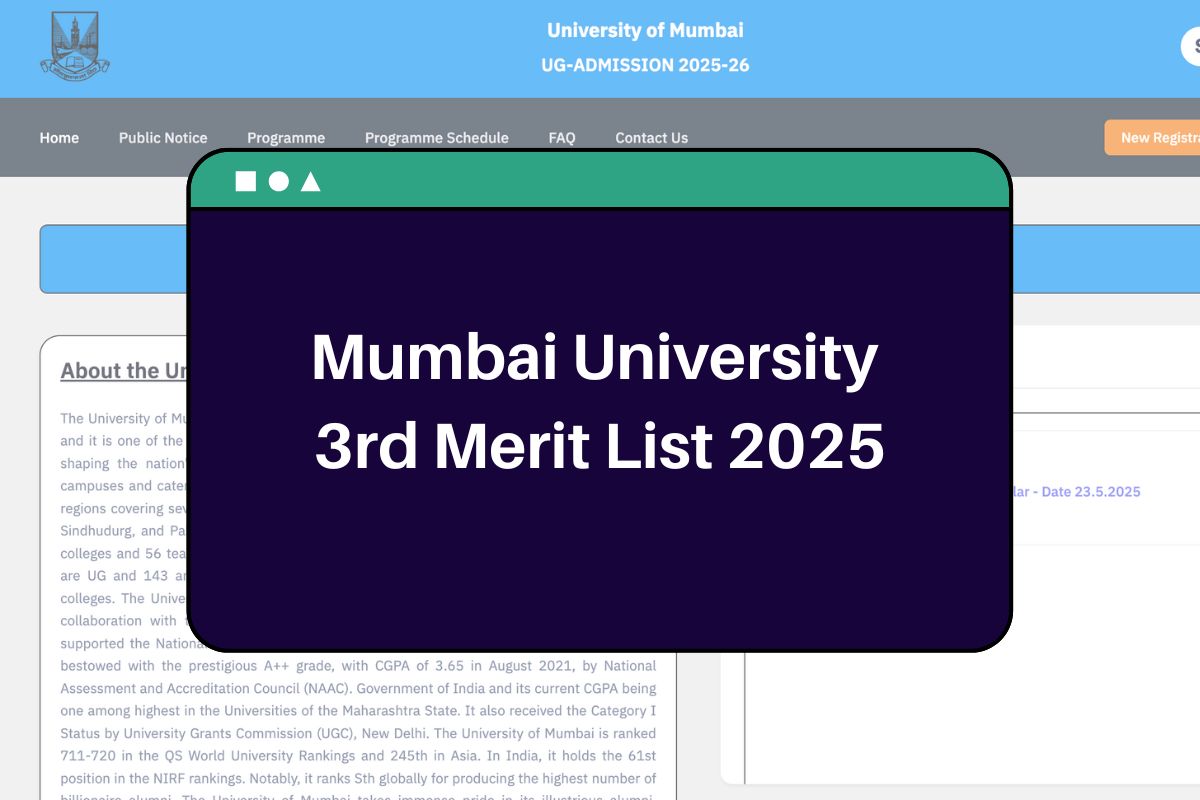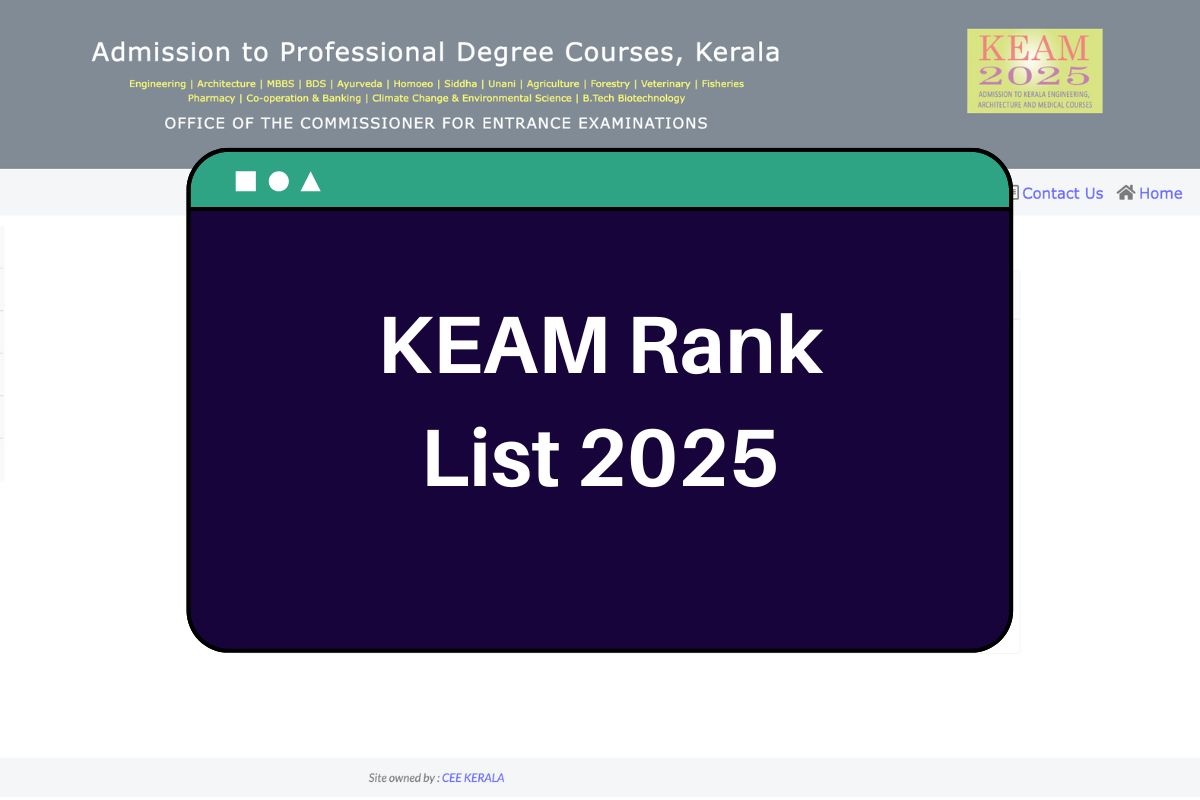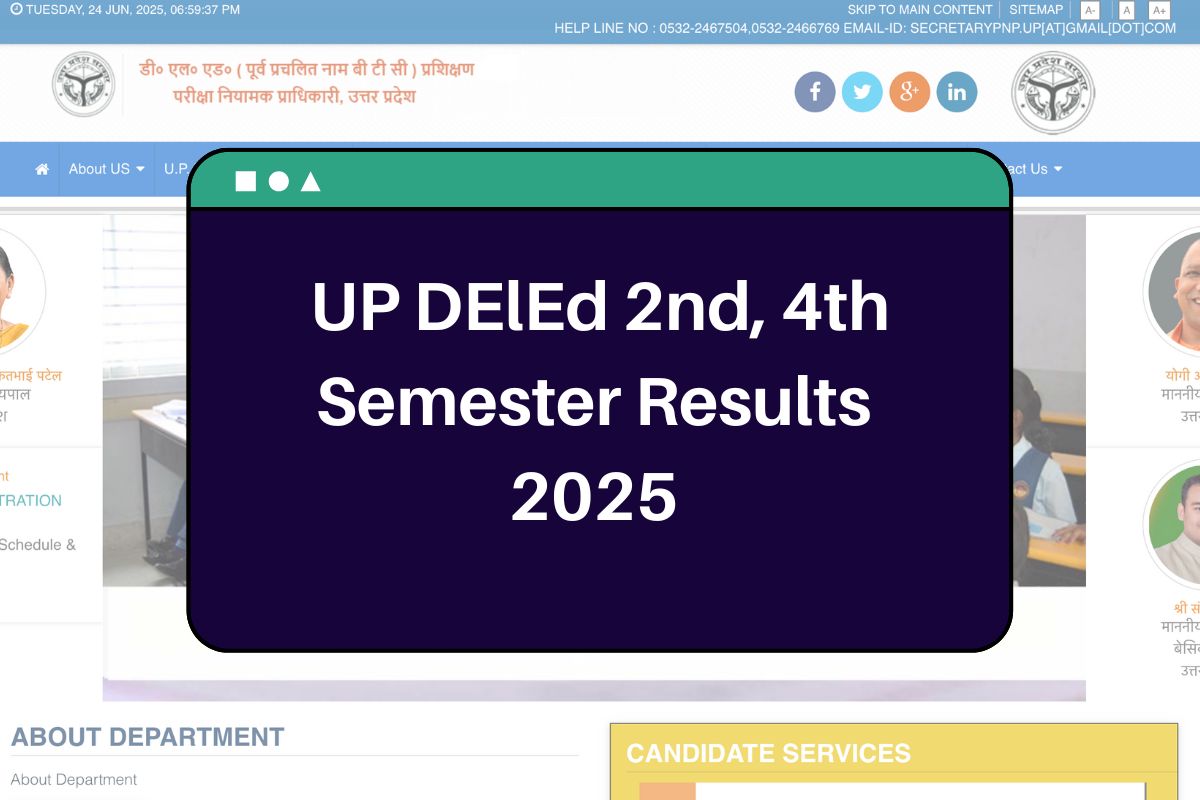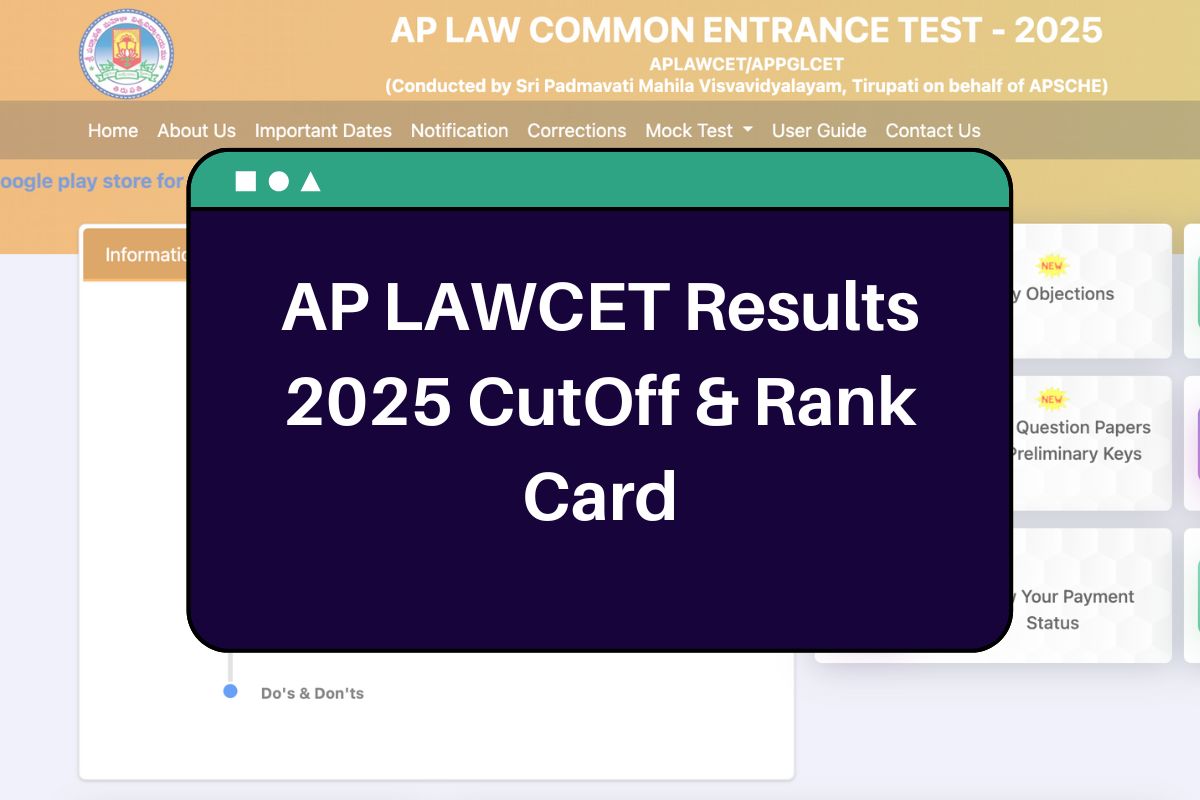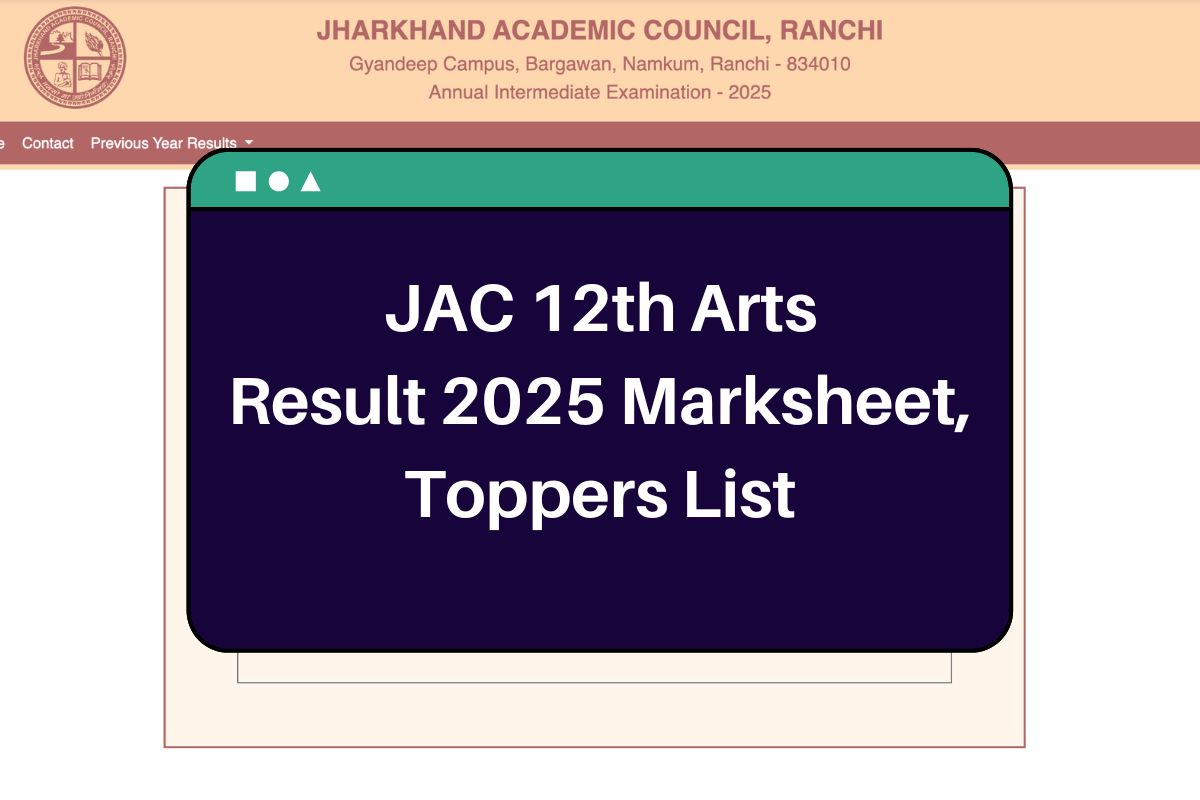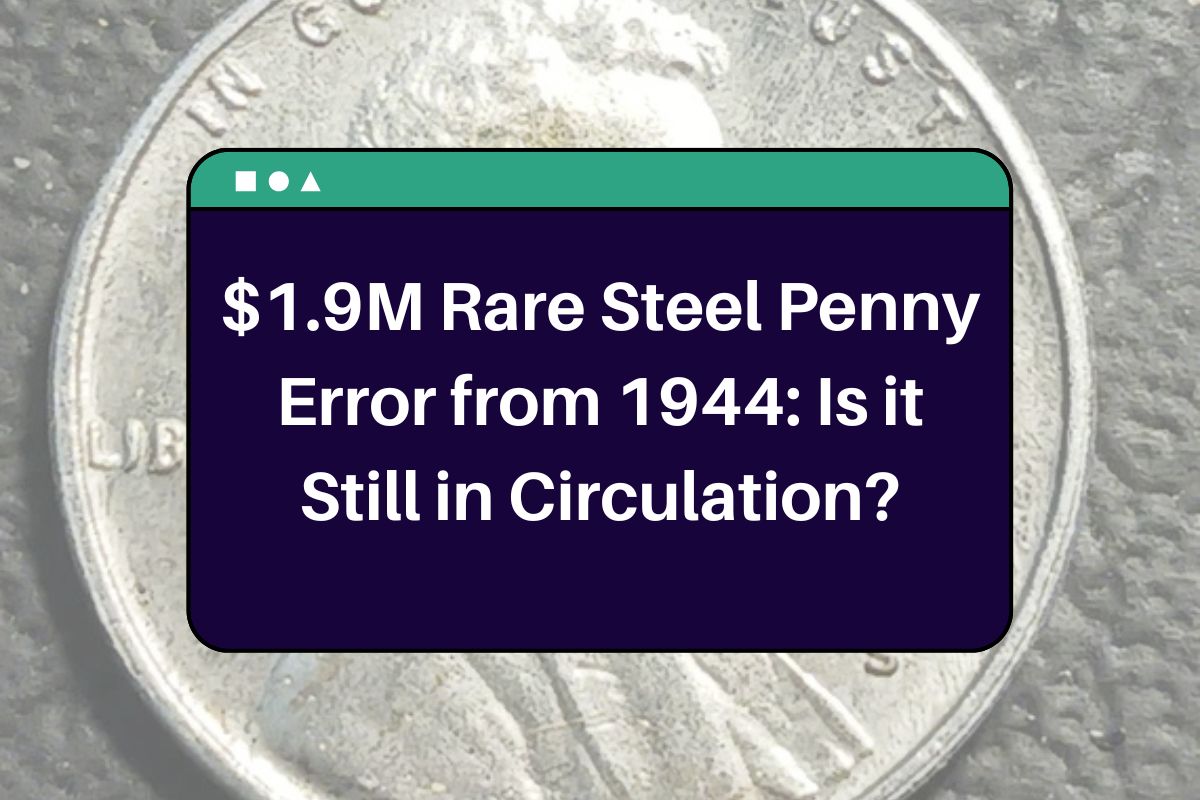Latest News
Admit Card
Merit & Rank List
Result

WBJEE Result 2025: wbjeeb.nic.in Scorecard
WBJEEB has shared the WBJEE Result 2025 on 22 August 2025, and aspirants may obtain their rank cards and scorecards ...
Coins

$4.5M Worth Rare 1861 Paquet Reverse Double Eagle Coin Found in a Flooded Basement
What if you found a coin with worth in millions in your house that can change your fortune? It seems ...
Latest Updates
DBRAU: Agra University Admissions 2025, Date Sheet, Admit Card & Results
On 1 July 1927, DBRAU was established thanks to the diligent work of a group of passionate educators. The university's original jurisdiction was the United Provinces of Agra, Central India, and Rajputana and it had 14 affiliated colleges and around 2500 students, of whom most of were from the United Provinces. At the beginning, DBRAU had just four faculties: the arts, sciences, commerce, and law. The following faculties were later added: Fine Arts (1982), Basic Sciences (1981), Home Science (1980), Medicine (1936), Agriculture (1938), and Management (1994).
DBRAU Agra University
Pursuing excellence and consistently upholding high standards in terms of information transfer and research promotion are crucial traits that impact an academic institution's education. Over the past many decades, the University has worked to continue embracing these lofty ideals, built a rich history, and gained the respect of the intellectual community.
Disclaimer:- This website is an independent news and information portal and is not officially associated with Dr. Bhimrao Ambedkar University (DBRAU), Agra. All information related to admissions, date sheets, results, and other academic details is collected from publicly available sources for informational purposes only. Visitors are advised to verify all information through the official DBRAU website www.dbrau.ac.in before taking any action. We are not responsible for any errors or changes made by the university.
Northern India has benefited greatly from the university's dedicated support of higher education. The University has worked to include moral and ethical principles into teaching, which is an old idea. In order to instill these fundamental principles in its students, academics have been diligently working to improve the University's curriculum and content.
Renaming of the University
The U.P. Government's Notification No. 33/XVII-V-1-1(ka)-43-1996, dated 06.01.1996), changed the name of Agra University, Agra to Dr. Bhimrao Ambedkar University, Agra, effective 24.09.1995. Today, the university serves the educational needs of the seven districts of the Agra Division: Mainpuri, Hathras, Firozabad, Etah, Mathura, Aligarh, and Agra. In addition, SNMC, one of the nation's oldest and most prestigious medical schools, is honored to be connected with DBRAU. Moreover, this university accredits homeopathic colleges throughout the State of Uttar Pradesh.
The university continues to grow as a hub for cutting-edge research and higher scientific vocational and job-oriented education. Innovation in education and becoming a national and international center of excellence are the university's goals. The university's mission extends beyond providing high-quality instruction to include meeting the students' intense desire to develop their creative minds and positive learning styles. As it moves from darkness to light, the university is doing everything it can to live up to its slogan, "Tamso Ma Jyotirgamay."
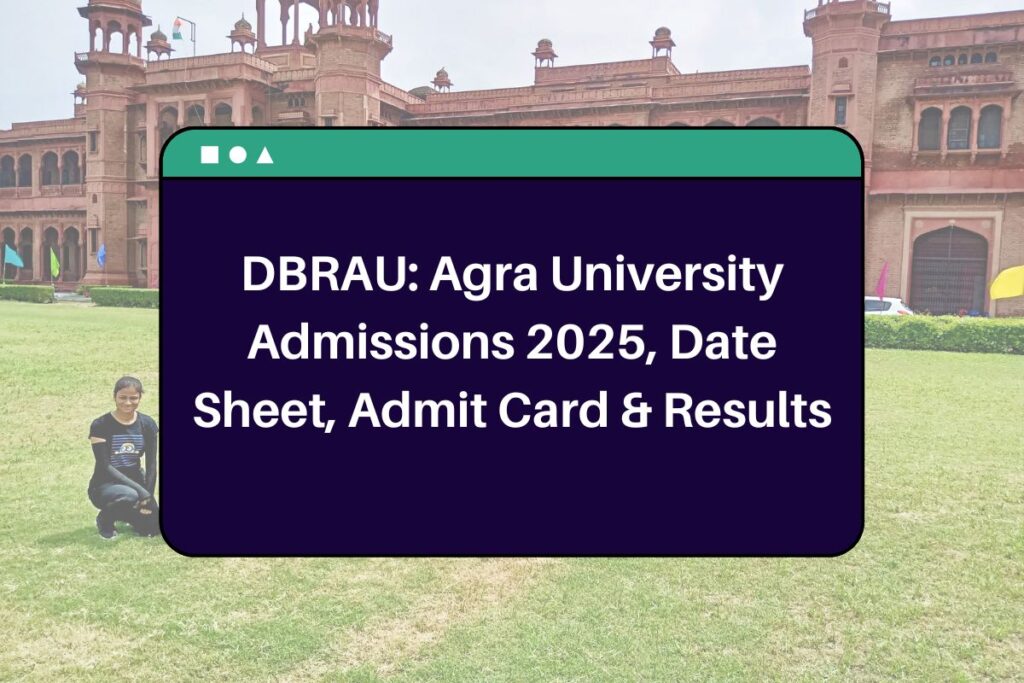
Deptartments in DBRAU, Agra
Despite its original affiliation, the university has now grown a sizeable residential wing that includes the following Inst.s and separate teaching Dept.s:
- K. M Inst. of Hindi and Linguistics (1953)
- Inst. of S.S (1957)
- Inst. of Home Science (1968)
- Inst. of Basic Science (1984)
- Dept. of Library Information Science (1984)
- Dept. of History (1985)
- Department of A.C.C.E (1989)
- Department of P.H.E (1989)
- S.P.C.J. Inst. of CBME (1993)
- Dau Dayal Inst. of Vocational Education (1994)
- I.E.T (1998)
- DDU Inst. of Rural Development (1998)
- School of Life Sciences (1998)
- Department of CSSL (1998)
- L.K.L ( Inst. of Fine Arts) (2000)
- Inst. of Computer and Information Science (2004)
- Inst. of Hotel and Tourism Management (2004)
Vision
To maintain position as the industry's and community's chosen partner for advancement and growth by developing students with professional skills, knowledge, and ethical values.
Mission
- To provide good and relevant education.
- To make a contribution to the progress of knowledge by doing study, publishing, and sharing developing students' abilities and talents while also helping them understand their responsibilities to their nation and to one another.
Core Values
- Academic autonomy and flexibility
- Cooperation and team work
- A concern for society and the environment
- Transparency and responsibility for all parties involved
Institutional Best Practices-
Bapu Bazar
- Understanding its duty to underprivileged groups in society, the university began a practice to benefit society with the primary goals as
- To build relationships and educate and understand the professors and students about their social duty.
- To protect the environment by making a better environment and recycle useless items.
- To offer basic needs to those who are poor at a reasonable cost.
Bapu Bazar is a small bazaar that was created by university staff and students out of a great deal of compassion to especially serve the needs of the underprivileged people living within and around the university's jurisdiction. When the university first opened the Bapu Bazar in 2010, it served as a venue for the distribution of clothing to its low-income employees and their families. It quickly became an annual event that attracted locals looking for clothing and other necessities for everyday life of all ages.
Her advice and views during the visit by Hon. Chancellor Smt. Anandiben Patel encouraged the university to increase the bazaar's influence, demonstrating its dedication to social responsibility and community improvement. She oversaw the Bapu Bazar's transformation from an annual event to a standard best practice. Under the direction of committed instructors and students, it increased the range of products it offered to cover basic needs.
Waste to Wealth
The university's sculpture department spearheaded the conversion of metal debris from infrastructure projects into priceless artwork, promoting trash recycling throughout the campus, motivated by the vision of Hon. Chancellor Smt. Anandiben Patel. Programs gained rapid momentum via strong student collaboration, further bolstering the university's sustainability pledges. The university cleverly turned the metal scrap, which it had been struggling with, into eye-catching artwork, improving campus aesthetics and cutting expenses at the same time.
The university is taking the lead in this regard by creating ornamental objects out of waste materials to adorn the campus. The university benefits financially from the early planning and preparation of various ornamental things, which start the process of making the campus more aesthetically pleasing.
To create creative paintings, decorations, and artifacts, the students at the institution use leftover materials from the university. This program not only increases the institute's visual attractiveness but also adds to the university's riches by giving students the creative tools they need to recycle waste.
By reusing materials that would otherwise be thrown away, this project has not only saved the university's money but also promoted a tidy and beautiful atmosphere. It also provides a concrete illustration of sustainability, highlighting the value of resource preservation and responsible citizenship. It highlights the need of maximizing existing resources for the good of the organization and the larger community and shows the possibility for innovative material reuse.
DBRAU- Code of Conduct
- The rules made by DBRAU, the head of the university, and other capable officials, authorities, or organizations of DBRAU, as applicable, must be followed by all students admitted to the various collages of the university.
- Attendance: Everyone is required to be present during the university's regular hours and attend the classes. If a student has less than 80% attendance for any reason, including involvement in extracurricular activities or medical reasons, the responsible faculty member will not allow the student to take the course or the End Semester Examinations (ESE).
- Dress Code: Students have to wear respectable clothing. While they are permitted to wear stylish gowns, it is not permitted for them to seem not as per culture.
- Identity Card: Every student must carry their identity card while on campus and the university campus will not allow any student without an ID card.
- Wearing a Helmet: Students who ride two-wheelers to school are required to wear helmets approved by ISI.
- Speed of Two- and Four-Wheeler Vehicles on Campus: In any case, vehicles on campus should not be allowed to travel faster than 10 km. Any student who exceeds the speed restriction will be assessed a fine of 2000. The disciplinary committee's judgment may result in a higher fine.
- All students are required to speak in a respectable manner when on campus.
- It is required of all students to act with decency when interacting with instructors, staff, and other institute students.
- Mobile phone use is absolutely forbidden in lecture halls and other academic area.
Admission Policy
- All university admissions for the academic year 2025–2026 will be processed using the Single Admission Monitoring system.
- All qualified students and applicants can use the University Admission Monitoring system to enroll in more than one course for a single registration fee or students can choose the college of their choice based on seat availability.
- The official university website, www.dbrau.ac.in, is where eligible students and applicants can submit their applications for admission.
- All information relevant to admission, including announcements, guidelines, instructions, and prospectuses, may be found on the official university website.
Guidelines for Admission
- Applications will be accepted online for admission to undergraduate programs offered by the university's Residential Wing and Affiliated Colleges. Admission requirements will be detailed on the university's website, www.dbrau.ac.in.
- The University website, www.dbrau.org.in, will provide information about the admissions process. Applicants are encouraged to often check the university's website for changes.
- Candidates may be aware that they will not be granted admission to any specific course if there is a disparity in the cost, eligibility requirements, or anything else similar because of printing errors or other issues and he/she must pay the full fee of the course at the time of admission.
- The candidate must confirm that they have correctly completed the application form and reviewed the course's qualifying requirements, if it is determined that the candidate is not eligible, admission will be canceled.
- Reservations for entrance will be made in accordance with U.P. government regulations.
- The university retains the right, if there are not enough applications or students, to provide any self-financing courses in residential wings or affiliated colleges. The applicant's money will be reimbursed in certain circumstances.
- If a candidate is accepted into a course but does not submit their eligibility certificate within the allotted period, their admission may be canceled; they will be held entirely accountable for this and the fee will not be reimbursed.
- The Honorable Court, Government, or University may change any fee schedule at any time without giving the candidate advance warning or information, and the candidate will be legally bound by the fee's deposition.
- Admission to minority institutions shall be granted in accordance with the current regulations of the UP government and university.
- Any changes made to the admission requirements or fee structure of any course will affect candidates who are still trying to get in after registering.
DBRAU Agra Courses and Fee Structure
At the doctoral, undergraduate, graduate, certificate, and post 10th grade levels, DBRAU Agra offers many courses. Tuition, hostel fees, security deposit, and other fee components add up to the total DBRAU Agra fees. According to DBRAU Agra's policies, certain parts may be refunded. At the end of DBRAU Agra's admission, the course fees is paid.
| Courses | Total tuition fees (Please check official website) |
|---|---|
| B.E. / B.Tech (8 Courses) | Rs. 1.65 L - 2.8 L |
| B.Ed (348 Courses) | Rs. 10.15 K - 1.02 L |
| BDS (1 Courses) | Rs. 11.4 L |
| B.Sc. (515 Courses) | Rs. 6.06 K - 1.95 L |
| B.A. (518 Courses) | Rs. 7.76 K - 34.05 K |
| LL.B. (20 Courses) | Rs. 9.21 K |
| B.Com (199 Courses) | Rs. 7.76 K - 42 K |
| BCA (46 Courses) | Rs. 27.3 K - 2.55 L |
| BHMS (9 Courses) | Rs. 63 K - 11.65 L |
| BBA (58 Courses) | Rs. 22.3 K - 3.75 L |
| B.Pharma (4 Courses) | Rs. 2.53 L - 2.88 L |
| B.A.M.S. (5 Courses) | Rs. 9.21 L - 12.78 L |
| B.A. LL.B. (6 Courses) | Rs. 50.3 K |
| UG Diploma (17 Courses) | Rs. 6.5 K - 10.47 K |
| BFA (6 Courses) | Rs. 81.9 K |
| BHMCT (1 Courses) | Rs. 1.61 L |
| MDS (9 Courses) | Rs. 7.5 L - 21 L |
| M.Sc. (328 Courses) | Rs. 5.62 K - 80 K |
| M.A. (450 Courses) | Rs. 6.05 K - 50 K |
| M.Ed (30 Courses) | Rs. 18.31 K |
| MD (27 Courses) | Rs. 60 K - 7.5 L |
| PG Diploma (25 Courses) | Rs. 3.23 K - 15.34 K |
| M.Com (36 Courses) | Rs. 21.35 K - 30.67 K |
| MSW (1 Courses) | Rs. 22.03 K |
| MBA/PGDM (8 Courses) | Rs. 15 K - 1.5 L |
| Certificate (13 Courses) | Rs. 5 K - 10.47 K |
| MS (3 Courses) | Rs. 90 K |
| PGDCA (1 Courses) | Rs. 15 K |
| MFA (7 Courses) | Rs. 60.95 K |
| M.Stat. (1 Courses) | Rs. 6.05 K |
| M.Pharma (5 Courses) | Rs. 1.53 L |
| After 10th Diploma (7 Courses) | Rs. 25.34 K |
| M.E./M.Tech (4 Courses) | Rs. 1.28 L |
DBRAU Admissions
Both online and offline admissions are accepted at Dr. BR Ambedkar University and those who are applying online can do so via dbrau.ac.in. While, students who want to apply offline can get the form from campus and submit it. Courses in science, arts, commerce, engineering, pharmacy, and other fields are available at the undergraduate, graduate, and doctoral levels at DBRAU.
On the basis of performance in entrance test, students will get admission to DBRAU, however, for admission to most of its UG and PG courses, DBRAU also accepts scores from various other exams. Furthermore, a written exam and a personal interview round are the foundations of DBRAU admission to Ph.D. and M.Phil. programs.
Training and Placement Policy
On February 16, 2022, Dr. Bhimrao Ambedkar University in Agra formed a Training & Placement Cell thanks to the efforts of Prof. Vinay Kumar Pathak, who was the vice chancellor at the time. This is the first and most significant attempt in this direction made by a vice chancellor in our university's history. Following Prof. Ashu Rani's arrival. In her capacity as Vice Chancellor, she took the initiative to strengthening the cell. Prof. U N Shukla, the coordinator of this cell, is supported by two assistant coordinators, Dr. S K Jain and Prof. Anil Gupta, respectively. This cell is also connected to the active members and departmental placement coordinators.

